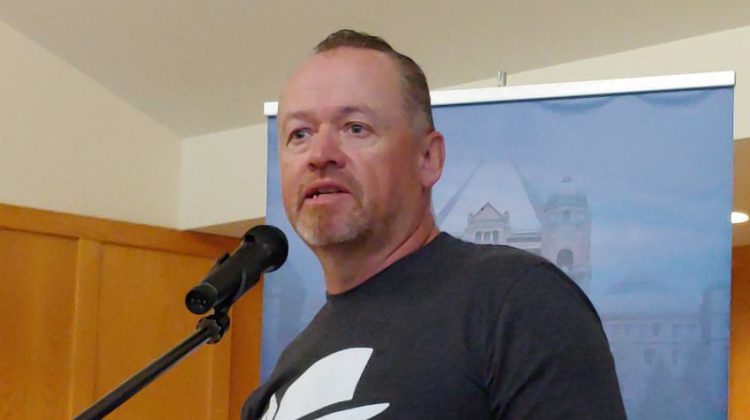Orange Shirt Day is a day that aims to shine a light on the atrocities of the residential school system in Canada. For Nipissing First Nation, it is one of many days where they are reminded of that reality.
“Almost every family in my community has been affected by residential schools in one way or another,” said Chief Scott McLeod of Nipissing First Nation. “We all know the stories down here. We all know all too well the intergenerational trauma that occurred from the schools and the legacy that it’s left behind.”
September 30 has been recognized as Orange Shirt Day since 2013, but the reason behind it goes back 40 years earlier. The symbolism of the orange T-shirt represents Phyllis Webstad, who was excited to wear an orange T-shirt her grandmother had bought for her first day at St. Joseph’s Mission residential school in British Columbia. When she arrived at the school, her clothes, including the orange T-shirt, were taken and never returned.
Chief McLeod says that it’s important for Canadians everywhere to educate themselves on Webstad’s story as it represents what many Indigenous children experienced.
“I think it’s a bit of an eye-opener for the average Canadian citizen who was probably not aware of these things that occurred right in their own backyards over the last 170 years. It’s a time to reflect on those mistakes and have some compassion and understanding of what the struggles are today and just to shed more light on Indigenous communities and how we need to push for equality across the board,” he explained.
The last residential school in Canada closed down in 1996, but McLeod says that the effects from the schools still linger nearly 25 years later.
“We continue to see family and domestic problems, addiction and social issues because of those things that were done in the past. The community cannot heal if we don’t have this awareness and discussion of what actually happened,” he explained.
McLeod says that Orange Shirt Day provides a valuable platform for Indigenous people to speak up.
“When we get these opportunities we have to tell those stories and share those messages so eventually it will become common knowledge. That’s what we strive for: making Canadians aware of our history,” he said, suggesting that people should read the Truth and Reconciliation Commission reports on residential schools, as well as further educating themselves on Phyllis Webstad’s story.
“Once people know the true facts and history then things start to change. The politics won’t change unless the voters have a change in mindset and that’s why awareness is so important.”
McLeod has noticed a recent change in the way Indigenous people are perceived, saying that they have more of an opportunity to share their stories.
“It’s like after a storm when it’s safe to come out now. It’s safe to talk about these things and make people aware of what Indigenous people have endured and why our communities are the way they are and what their struggles are,” he observed.
Nipissing First Nation was unable to do its usual Orange Shirt Day commemoration which would see community members gather for a meeting and photos. McLeod says that they are providing education awareness via social media and other online platforms.


